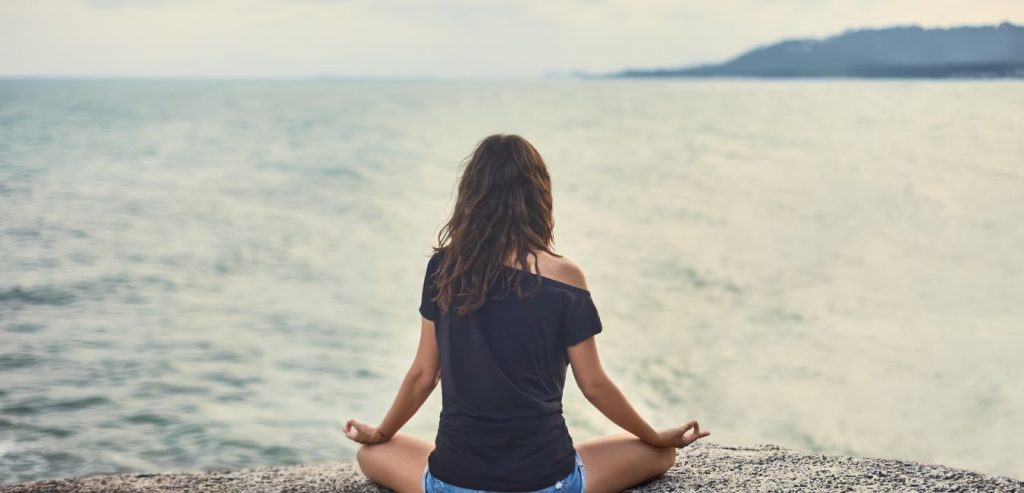There are many components to our health and wellness. There is the physical body, the emotional body, the psychological body, and the energetic body. In our culture and in today’s world, so many people are feeling out of balance, overwhelmed, depressed, or exhausted. We adopt the latest diet trends, try new exercise fads, and ingest newly formulated supplements to boost our energy, slim down, or help us feel better. But each of us is unique and we often find ourselves on a path that feels burdensome, unpleasant, and is hard to stick with because it is not what we really need to achieve better balance and well-being. Perhaps, instead, we learn to turn to another source to discover what we really need for greater balance and better health – mindfulness.
Mindfulness can be a wonderful path into a deep sense of balance. Many ancient meditative traditions focus on the following five key components of optimal health: eating, sleeping, resting, digesting, and moving. If we can listen inward to what it is our body needs in each of these areas, we can establish and reinforce our physiological baseline and experience balance and alignment in our body and energy systems.
Today, we often search for a quick fix to improve well-being. But in the ancient traditions, the path is slow and the answer to well-being lies within us. For example, we can learn to listen to our body and its unique rhythm. We can learn to tune in to discover what we need. We can learn to eat when we are hungry and what our body craves. We can learn to rest when we are tired. We can move our bodies in ways that feel good. These may seem simple, but these healthy habits can vastly improve our health by learning to listen to our bodies to see what is right for us.
For anyone who has enjoyed a meditation retreat, one of the healing aspects of the retreat is the schedule you are on. A retreat gives you time and the opportunity to tend to yourself and pay attention to your body. You have time to taste your food, eat slowly, pay attention to when you are hungry and when you are full. You have time to rest, sleep, and walk. You eat, sleep, and move on a suggested schedule and your body takes on a natural, healthy rhythm. You are not burdened or overwhelmed by choices of what to do and how to prioritize your time. Instead, you have time to listen to your body and give it what it needs.
We don’t have to be on retreat to learn to listen to our bodies and set up a routine that helps us regulate energy systems. We can learn to tune into our own natural rhythm and tempo each day. We can learn to resist the urge to move at a pace and perform activities that don’t feel right for us. We can meditate to take time out of our busy lives to tune inward to ourselves. In meditation, we are resting in awake stillness, listening to our bodies, and allowing the body time to rest, digest, recalibrate, and process all that is happening inside and around us.
We can use the practice of inquiry to pay greater attention to how we want to move and what our bodies need. We can ask ourselves, “What is right for me?” And, pay more attention to our intuition, rather than get sucked into the pressures of the world around us and the wellness industry that often pushes solutions that are not right for us.
This summer, play with the idea of looking for what is right for you to help you to find greater balance in your life. Don’t force yourself to move in a way that is not natural to you. Take your time. This is a long game. Establish routines that feel good. Find yourself on a path of self-care that truly nourishes you and establishes your own unique baseline of balance and well-being.
by Cheryl Vigder Brause

